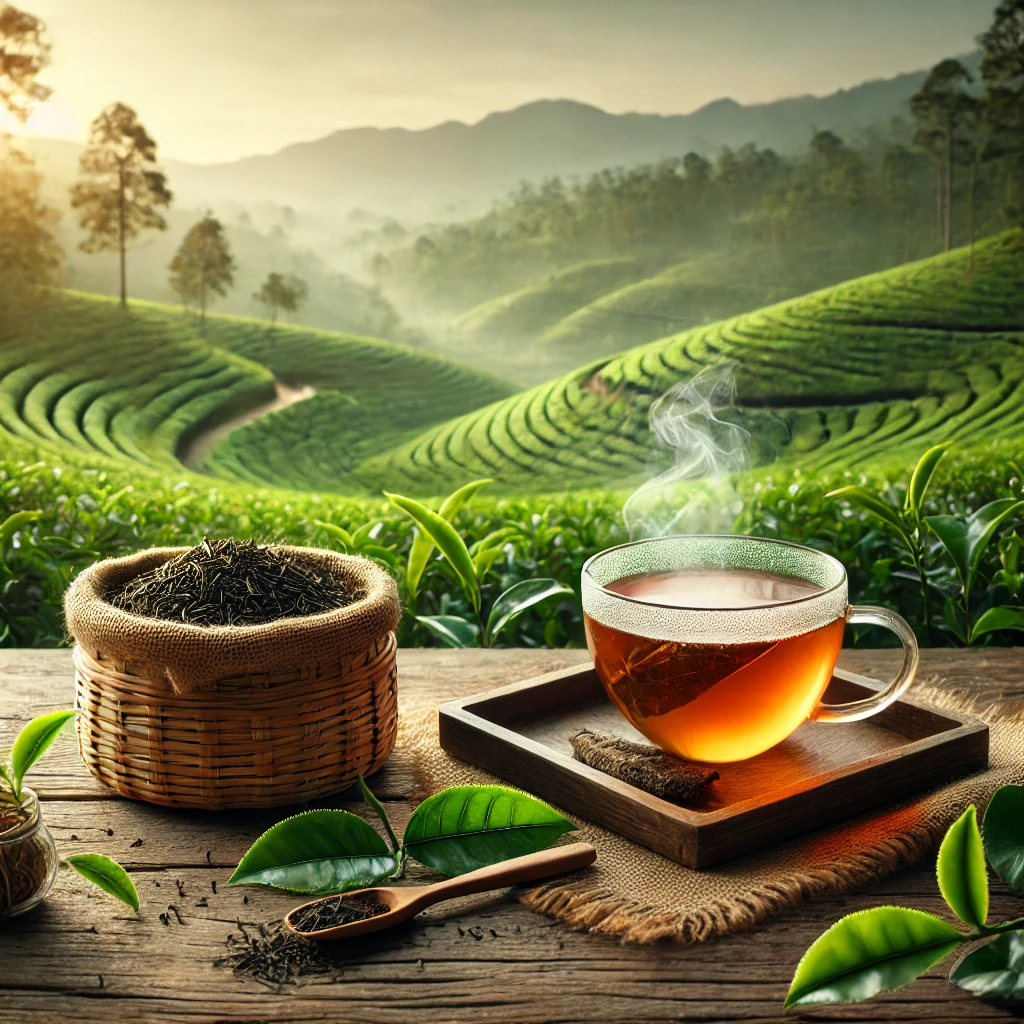FREE SAME DAY SHIPPING ON ALL ORDERS BEFORE 4PM EDT
When we started this company, we knew we wanted to build something that benefited as many people as possible. We believe that businesses should be built with integrity, at every step of the process. It was tantamount that all of the teas we distribute were fair trade certified and ethically sourced. The farmers who grow the tea leaves are the foundation for our business. In addition, we sought out teas which are organic. In our opinion, organic tea tastes much better than their non-organic counterparts. Organic teas and foods are also kinder to the environment as they are made with strict rules and regulations and zero pesticides, which harm the environment, the farmers, and ultimately, the consumers. There’s a lot to tackle here, and I certainly will not be able to cover all of it, but I want to shed some light on the importance of fair trade and organically-made products.
What is Fair Trade?
According to Fairtrade America, farming is the largest employer in the world, yet most farmers do not earn a liveable wage. While we, the consumers, fill our bellies, the farmers growing our food struggle to fill theirs. Unfairly compensating farmers leads to unsafe working conditions that, in turn, harm the planet. This is enough information to understand how dire it is to make sure those who produce our food are treated humanely, are given the opportunity to preserve their culture, and are able to provide their children education.
The Issues Farmers Face.
When we learned about the unfair working conditions of workers in developing countries, we decided to curb our old consumption habits, and focus on consuming goods from ethical brands. Being of Bangladeshi and Indian origin, the exploitation of workers hits a particular, sensitive chord. And so, we had to apply the same principles to our business, knowing that exploitation of farmers is widespread.
Per the World Bank, most farmers subsist on only $2/day and farmers receive only one paycheck per year. By being paid so little, farmers are vulnerable to (unacceptable) forced labor, and even horrifying outcomes such as human trafficking. The meager pay forces farmers to get as many hands on the fields as possible, enabling child labor, where as much as 180 million children are involved. Moreover, 60-80% of farmers are women who are not only paid fairly, they also have no control over their wages, are discriminated against when applying for credit, do not have access to education, and do not own land or crops.
Climate change is directly witnessed and experienced by farmers in the form of soil erosion, changing weather, disease, and pests, leading to decreased crop yield. The decrease in crops means decreased income, increased costs to adapt to climate change, and food insecurity. This is also why we must focus on organic farming, as it is much kinder, and beneficial for the environment (elaborated later). Of course, there are many hands at play with climate change, and although ethical farming cannot solely fix the devastating climate impact we face today, it can at least lessen the burden.
How Fair Trade Benefits Businesses and Customers
According to Fair Trade America, fair trade businesses “strengthen supply chains, adding transparency and credibility”, and, “ensures that trading practices are sustainable.” By buying from fair trade businesses, customers are empowered to live true to their belief that everyone should be paid fairly for their work. By supporting sustainable business, you are able to drive the change you wish to see. Personally, I feel much better about my purchases when I know that those harvesting and producing them are duly benefited.
What is Organic Farming?
The United States Department of Agriculture (USDA) defines organic produce as follows:
“Produce can be called organic if it’s certified to have grown on soil that had no prohibited substances applied for three years prior to harvest. Prohibited substances include most synthetic fertilizers and pesticides. In instances when a grower has to use a synthetic substance to achieve a specific purpose, the substance must first be approved according to criteria that examine its effects on human health and the environment.”
In addition, organically processed products cannot contain artificial colors, flavors, or preservatives.
The Environmental Impact of Organic Farming
Though the environmental impact of organic farming may be a polarizing topic, it has been seen that the use of synthetic fertilizers, pesticides, and other weed- and fungus-killing chemicals cause negative impacts including soil erosion, diminishing biodiversity, and increased water pollution.
Countries such as India (where most of the teas we sell come from) are prime examples of organic farming that involves rich biodiversity, a low carbon footprint, and efficient use of land. In the article, “Is Organic Food Really Better for the Environment?”, published by Columbia Climate School’s “State of the Planet”, Sonlai McDermid, assistant professor at the department of environmental studies in NYU says the following:
“In India, organic farms grow lots of different crops at the same time. They grow plants that can naturally keep pests away and don’t use powerful inputs like sulfur. Instead, the farmers use plants and biodiversity to help regulate their cropping systems.”
In the same article, the author, Anuradha Varanasi, explains that Indian farmers fertilize their soil by legumes, which they grow in rotation. The legumes naturally release nitrogen into the soil, enriching it without the use of manure or synthetic fertilizers.
Overall, it seems that organic farming can boost crop yields, benefit the soil, and benefit farmers, especially those in developing countries.
Summary:
There is so much more to write about these topics, but I’ll end my blog post here. Ultimately, we strive to empower the farmers and producers of our tea and snacks. By buying fair-trade and organic, we believe we’re taking a meaningful step in ensuring humane treatment and fair wages to farmers, as well as supporting beneficial farming practices to prevent environmental degradation seen in things such as water pollution and soil erosion. I hope this blog provides a glimpse into the gravity of these topics and empowers you, our valued client, to take the right steps for a better future, for all of us.
In light,
Akash


